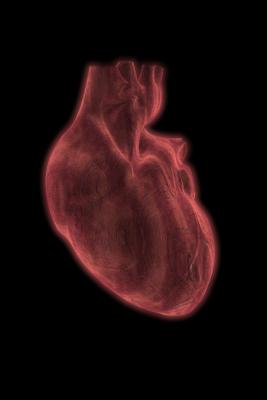
University Hospitals Case Medical Center and Case Western Reserve University School of Medicine (CWRU) researchers have uncovered a genetic factor that controls arrhythmias, the primary cause of sudden cardiac death (SCD) in the United States. The study will be published in the upcoming March edition of Nature entitled, “Circadian rhythms govern cardiac repolarization and arrhythmogenesis.”
Mukesh Jain, director of the Case Cardiovascular Research Institute, collaborated with the MetroHealth Heart and Vascular Center in Cleveland and reported a protein called Klf15 that links the body’s biological clock to heart arrhythmias and SCD.
“We have identified a factor that controls the duration of the ECG complex, and specifically something called the QT interval,” said Jain. “This duration is very precisely regulated by the body and has to be, if you will, just right. If this interval becomes too long or too short, this can predispose a person to arrhythmias.”
Darwin Jeyaraj, lead author of this study, discovered that increasing the levels of Klf15 could shorten this critical QT interval, while depletion of Klf15 can increase the duration of this interval.
“If we can now develop drugs that target Klf15, we can, depending on the situation, increase or decrease the duration of the ECG complex and, in principle, reduce the risk of SCD,” said Jeyaraj. “For example, heart failure can lead to lengthening of this interval and Klf15 levels are reduced in patients with heart failure. Thus, a drug that boosts Klf15 levels may help reduce the occurrence of SCD in this condition.”
Arrhythmias are an abrupt onset of “electrical storms” in the heart resulting in complete and immediate cessation of blood flow to all organs in the body. If electrical activity is not restored to the heart immediately, death ensues within minutes. Predisposition to arrhythmias arises from dysfunction of electrical properties that are inherent to heart cells. The dysfunction occurs most commonly in patients with heart disease (heart failure, coronary artery disease) or in individuals with certain genetic abnormalities.
The gene also has been identified as the main catalyst in changing how the electrical functions of the heart cells work in conjunction with an individual’s biological clock. A well-documented characteristic of arrhythmias is their preponderance to occur at certain times of day: early in the morning or during the night. The cause for time dependent occurrence of death in heart failure and individuals with certain hereditary disorders remains unknown, but more and more research points to the importance of the body’s “biological clock” as a timekeeper that is present in most cells of our body, and can precisely keep us synchronized with the day/night rhythms on earth. The clock controls numerous bodily functions such as feeding, sleeping and alertness during the day and there is growing evidence that dysfunction of this timekeeper could be important in the development of various metabolic disorders such as diabetes, obesity, cancer and heart disease.
“This discovery has opened a new chapter in our understanding of SCD and provides insights into the ancient mystery that associates time of day with death,” Jain said. “It is anticipated that continued research regarding the link between the biological clock and electrical properties of the heart will open new diagnostic tools and potential therapies that may prevent or treat the occurrence of this fatal event.”
Jain said the discovery should lead to the development of testing mechanisms for the gene to help predict potential patients who could be susceptible to SCD. Immediate drug intervention or development, however, would be in the future following the creation of affective testing protocols.
For more information: www.UHhospitals.org.


 January 05, 2026
January 05, 2026 









